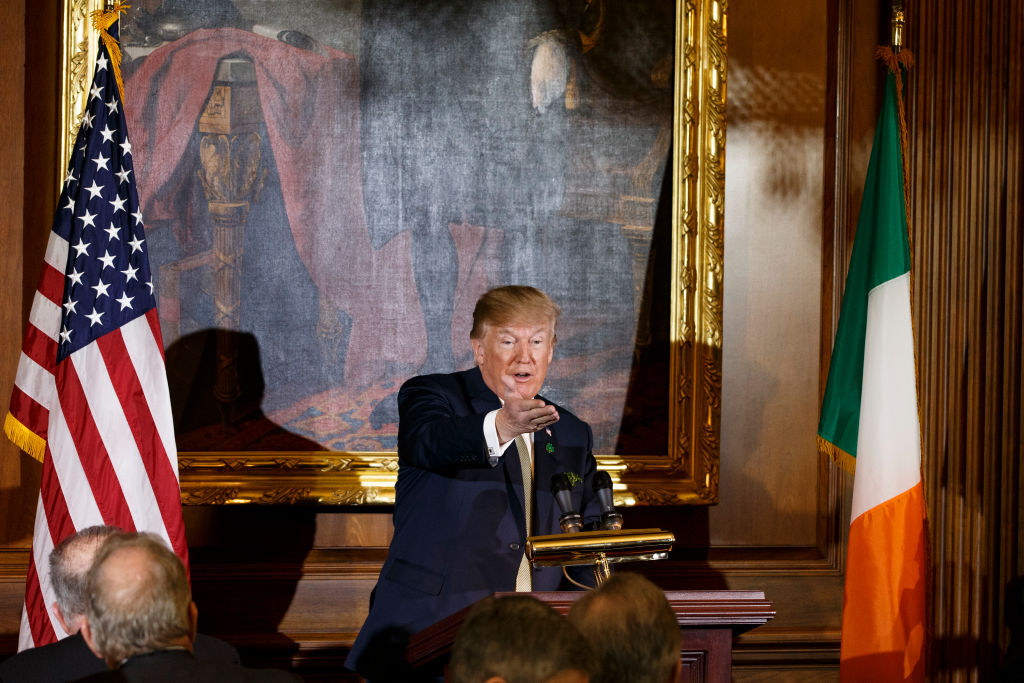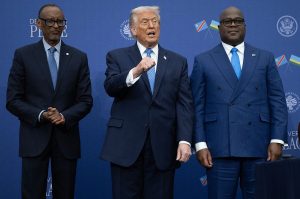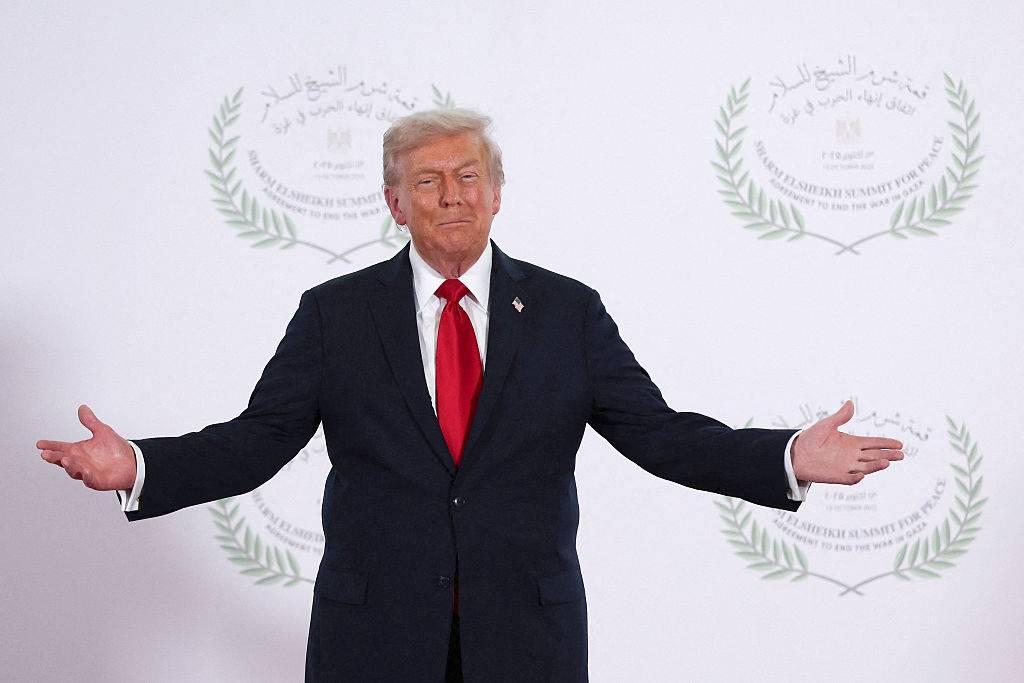Before the American election in November, there was unanimity among the Irish political classes that Kamala Harris would comfortably win. This support for Harris was matched by a casual disdain for Donald Trump. Before becoming Taoiseach, Simon Harris had dismissed Trump as nothing but “an awful gowl,” which essentially means someone is a moron. Ahead of the election, he posted a picture of a baseball cap from the Kamala Harris campaign, with the caption “If the cap fits…”
The future seemed rosy for Ireland: the Democrats would win, the Fine Gael/Fianna Fáil coalition would continue as before, and the natural order would be maintained. Well, we all know what happened next.
After years of dunking on Trump, reality has kicked in for the Irish political class
Now, after years of dunking on Trump, reality has kicked in for the Irish political class. First to distance himself from his previous comments was Simon Harris himself, who was quick to inform anyone who would listen that he had only called Trump “an awful gowl” in “a lighthearted manner.” When asked if he would apologize to Trump for the remark, Harris replied that he had already had a “great conversation” with Trump following the election and added, perhaps more in hope than expectation that, “I believe President Trump would grasp the context of these humorous remarks.”
Even before his inauguration the Trump effect was on display. Following the Irish general election, part of the new regime’s program for government was the hugely controversial Occupied Territories Bill. This bill would not only ban any imports from Israeli firms operating in the West Bank, it would also make it an offense for any Irish person to assist or help any Israeli company and anyone convicted of such an offense faced up to five years in jail and fines of up to €250,000. Originally drafted back in 2016 the bill was particularly popular with left-wing politicians.
But what would the new president think? Former Irish ambassador Dan Mulhall warned that the Trump administration would “take a very gung-ho approach to such a move,” while former Irish envoy to the US Congress John Deasy said: “When it comes to the pro-Israeli lobby in Washington, it’s true to say that if they put their minds to it, they have so much influence, could they damage Ireland? Yes they could, they are an incredibly influential group.”
The Trump team had promised to sanction any country which blocked any form of trade with Israel. So, even before Trump had taken office, Irish politicians faced their first test of nerve — go ahead with the bill and face the wrath of Trump or do the sensible thing and kick it into touch? Thankfully, they saw sense. Three days after revealing the bill at the Fianna Fáil party convention, the current Taoiseach, Micheál Martin, withdrew it in its entirety, saying that that the drafting was “unconstitutional” and the whole bill needed a massive rewrite. It remains a mystery that what was deemed constitutional on a Wednesday should suddenly be deemed unconstitutional by the Sunday.
Interestingly, at the same time, the government also adopted the IHRA working definition of antisemitism, in what has been interpreted by many as yet another attempt to get back into Trump’s good graces.
After Trump’s inauguration, both Harris and Martin sent letters of congratulations. There was almost a pleading tone to the Harris missive, as he reminded Trump of his previous investments in Ireland and its people “through his magnificent golf links in Doonbeg.” Unfortunately, a shared appreciation for golf may not be enough.
Trump’s new commerce secretary nominee, Howard Lutnick, has already launched repeated attacks on the sweetheart tax deal that exists between the Big Tech and Pharma companies who have made Ireland their European base of operations. In November he said that, “it is nonsense that Ireland, of all places, runs a surplus at our expense.”
Ireland now finds itself exposed on two fronts and the government knows it. It is utterly dependent on American tax revenue while deeply embedded in the EU. If the current war of words between the two powers turns into something more serious, then Ireland will be the first and most obvious casualty.
More than 250,000 Irish people are directly employed by US companies, with hundreds of thousands more relying on these firms indirectly. The billions they provide in tax revenue is the fuel which keeps Ireland’s otherwise moribund economy on the road. If they go, any hope for future Irish prosperity goes with them and it would a be a genuine national disaster.
Harris has already announced plans to “beef up” the Irish Embassy in Washington and the next big test will be the traditional St. Patrick’s Day meeting in the White House.
Contrary to popular opinion, this meeting is not just a photo-op. It’s a week-long opportunity for officials and diplomats to have unparalleled access to their American counterparts and is the most important part of the Irish diplomatic year. The level of welcome they receive at the White House may well be a foretaste of what is to come.


























Leave a Reply